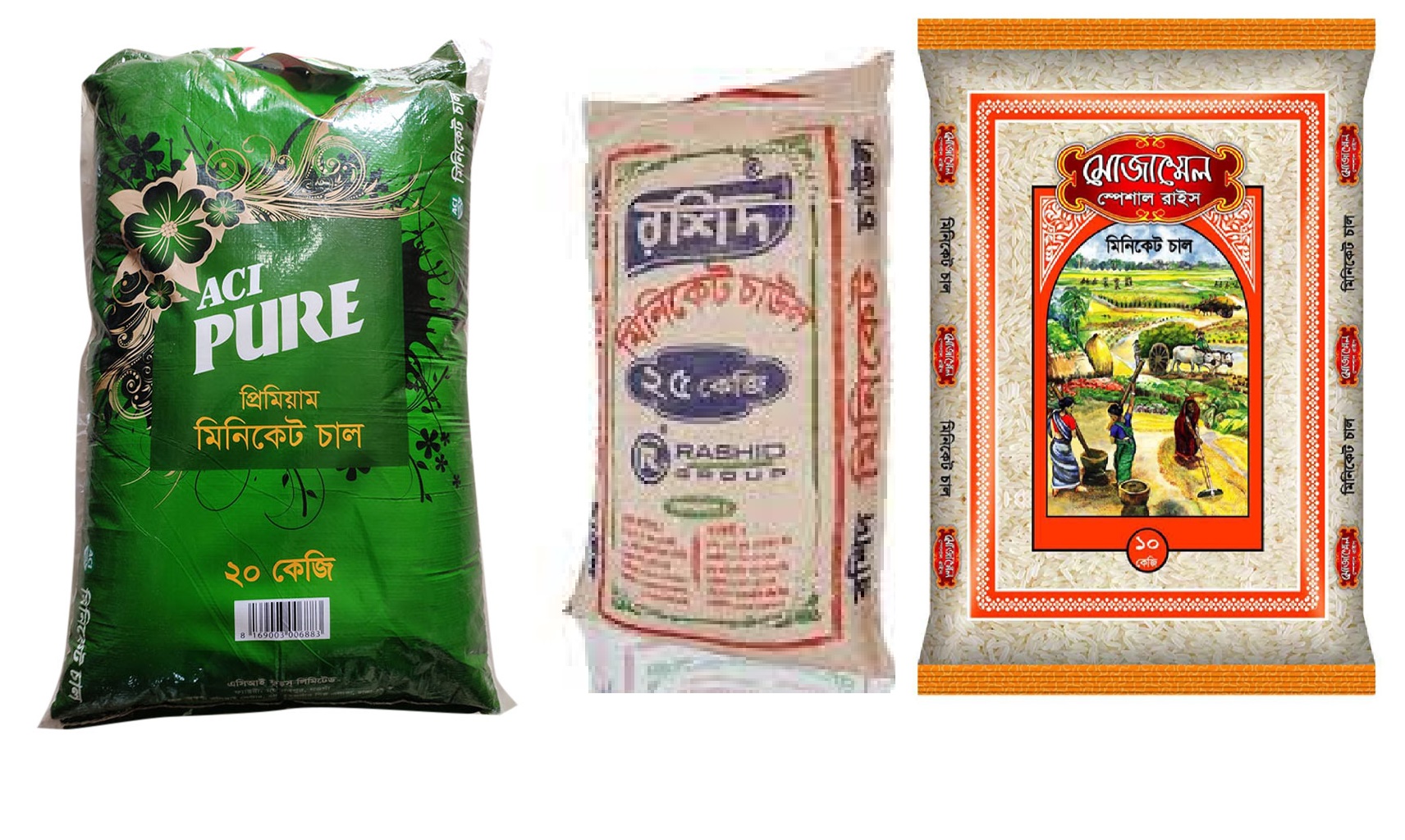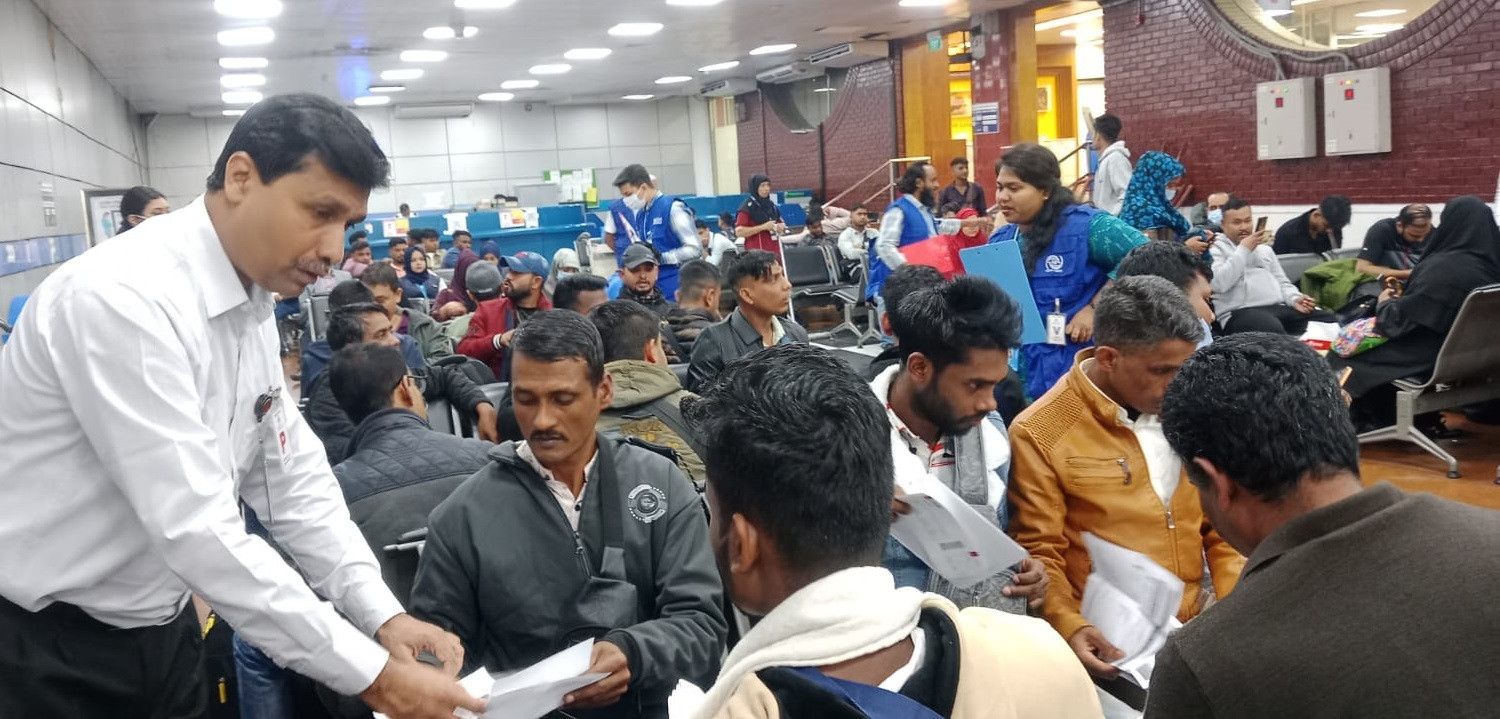All varieties of miniket rice and most of the najirshail variety found on the market across Bangladesh are actually over-polished coarse varieties of rice, found a recent government study.
Capitalising on people’s preference for fine white rice, traders and millers collect different varieties of coarse paddies or rice and hugely polish them before marketing them as miniket and najirshail varieties, according to the study yet to be published.
No paddy exists by the name of miniket while there is hardly any cultivation of najirshail paddy anywhere in Bangladesh these days, said the study.
The Bangladesh Rice Research Institute’s research wing estimated that the najirshail variety accounted for less than one per cent of the country’s overall rice output while roughly 80 per cent of the rice sold on the market is branded as either miniket or najirshail.
‘We will not allow our people to be cheated anymore,’ said Food secretary Mosammat Nazmanara Khanum, adding that they will soon work out a mechanism to stop the malpractice.
She also said that they would shortly discuss the study findings in an internal meeting before their publication for an action plan.
The country’s safe food law prohibits the mislabelling of food, which is punishable by both fine and imprisonment. The maximum punishment is two-year jail and Tk 4 lakh fine.
‘The miniket, najirshail, kataribhog, paijam varieties are the same rice in various names,’ said a line of the report drafted on the study carried out by the Food Planning and Monitoring Unit of the food ministry.
The study covered 18 districts selected for high rice production and milling.
Farmers, rice millers and traders, and agriculture extension and marketing officers were interviewed for the 2020 study that spanned about a year.
The source paddies identified by the study for the miniket rice variety were BRRI 28, 29 and 90 paddies plus jirashail, jira, subolota, swarna-5 varieties along with all medium and fine paddies.
The source paddies identified for the fake najirshail rice by the study were BRRI 28, 29, 31, 39, 51, 48, 49, 85 and 86 varieties along with the jirashail, swarna, sompakatari and paijam varieties.
Rice millers told the study that they milled different varieties of rice together and the milled rice was sold under various names.
‘Traders send sacks labelled with different rice names while millers only fill the sacks with their milled rice and send them back,’ said the study report.
Even retailers are unaware of the kind of rice they are selling in a sack, let alone consumers, said the study.
‘Millers and rice traders are making abnormal profit by selling low-priced rice at high prices while consumers are cheated,’ said the study.
On Friday each kilogram of miniket and najirshail rice varieties sold at Tk 65 while it took up to Tk 52 to buy the swarna and IRRI varities, according to the Trading Corporation of Bangladesh.
A kilogram of paijam and lota took up to Tk 60, the TCB price list showed.
The study said that using the names miniket and najirshail proved so profitable that they were used in various ways.
For instance, the study said, there are rice varities sold on the market as ‘jira miniket’ and ‘najir miniket’.
BRRI research director Krishna Pada Halder said that the miniket and najirshail varities had emerged as popular varieties over the last decade under a wrong impression that finer and whiter rice is better.
The name ‘miniket’ could have originated from ‘mini kit’, a package given to Indian farmers for the production of rice including seeds and fertilisers, he said.
According to Krishna, some farmers in Dinajpur started cultivating the unknown Indian rice variety while some of them may still cultivate it but the amount is very negligible.
‘The so-called miniket and najir varities cultivated in Bangladesh is less than 1 per cent of the overall rice production,’ said Krishna.
The total rice production last year was 3.87 crore tonnes, of which roughly 60 to 70 per cent was sold as miniket and 15 to 20 per cent as najirshail, he said.
‘The over-polishing of rice has serious health consequences with layers of protein, crude fibre and ash lost in the process,’ he said.
According to the government study, such milling leaves rice with only carbohydrate, completely removing vitamin B, thiamine, riboflavin, and niacin and reducing the zinc content to half.
BRRI 28 rice contains more protein, fat, crude fibre and ash compared to miniket rice, mentioned the study, referring to a 2016 research published in the Journal of Environmental Science and Natural Resources.
According to that research, millers use machines,










